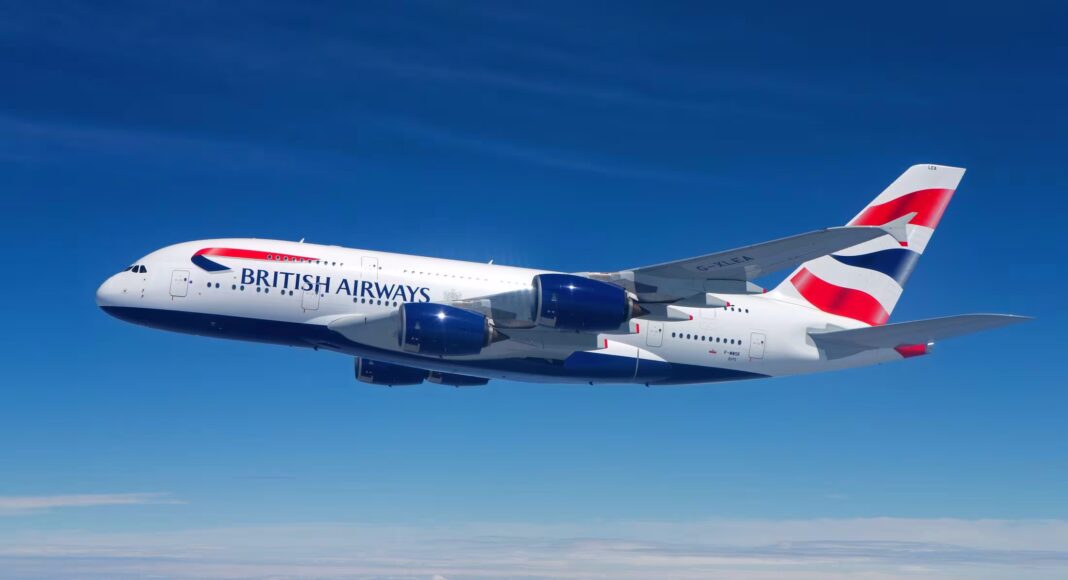British Airways’ $132 million artificial intelligence investment delivers measurable returns with dramatic improvements in operational efficiency, offering a blueprint for airline technology spending amid industry-wide performance challenges.
British Airways achieved an 86% on-time departure rate at London Heathrow through strategic AI deployment, nearly doubling its 2008 performance of 46% while saving hundreds of thousands of delay minutes, the airline reported.
The carrier’s £100 million ($132 million) investment in operational resilience centers on artificial intelligence tools that analyze massive data sets to optimize flight operations, prevent weather-related delays, and streamline passenger connections. The technology has prevented 403,000 minutes of delays through various applications, according to airline data.
“The tech colleagues have at their fingertips has been a real gamechanger for performance, giving them the confidence to make informed decisions for our customers based on a rapid assessment of vast amounts of data,” British Airways Chairman and CEO Sean Doyle said in a statement. “It’s exciting that our industry is able to harness this capability, which will develop even further in the months years to come.”
Tangible Returns on Technology Investment
British Airways’ AI deployment includes several targeted applications delivering specific results:
A landing space allocation tool at Heathrow analyzes passenger travel patterns and connecting flights, reducing missed connections and saving approximately 160,000 minutes of delays since implementation.
Weather prediction technology reroutes flights experiencing poor flying conditions and communicates directly with British and European air traffic control centers, preventing 243,000 minutes of delays.
The airline’s Runway Support program analyzes schedules, passengers, and crew data to model disruptions, processing 163 disruption scenarios across 2024 and 2025.
The investment enabled British Airways to hire over 100 data scientists since 2023, building internal capabilities for continued technological advancement.
Operational Performance Benchmarks
Last month’s performance metrics demonstrate the technology’s impact: two-thirds of all British Airways flights leaving Heathrow departed ahead of schedule, double the rate for April 2023 and up almost 20% from April 2024.
The AI systems help teams identify routes facing potential delays, enabling proactive resource allocation to maintain on-time performance. Similar technology highlights high-risk connections, allowing ground staff to expedite passenger transfers.
When disruptions occur, the Runway Support system evaluates multiple response options — canceling flights, delaying departures, or switching aircraft — based on comprehensive data analysis of affected schedules and passenger itineraries.
U.S. Airlines Following Similar Path
American carriers are implementing comparable AI-assisted programs to enhance operations. United Airlines deployed its Connection Saver system to help passengers make connecting flights on time, while American Airlines began testing similar technology at select hub airports starting this summer.
The adoption reflects growing industry recognition that targeted technology investments can deliver measurable operational improvements, particularly as airlines face increasing pressure to minimize delays and enhance customer experience.
British Airways plans additional AI tool deployments in coming months, including new applications for pilots, cabin crew teams, and aircraft dispatch teams designed to accelerate departure processes.
The airline’s systematic approach — combining significant financial investment with strategic hiring and phased implementation — provides a framework for technology adoption that delivers quantifiable results rather than theoretical benefits.

Key Takeaways
- British Airways’ $132 million AI investment improved on-time departures from 46% to 86% at Heathrow.
- Technology applications saved 403,000 minutes of delays through landing optimization and weather prediction.
- The airline hired over 100 data scientists since 2023 to support AI implementation.
- U.S. carriers including United and American are testing similar operational enhancement technologies.
- Phased deployment approach allows measurement of specific returns on technology spending.



